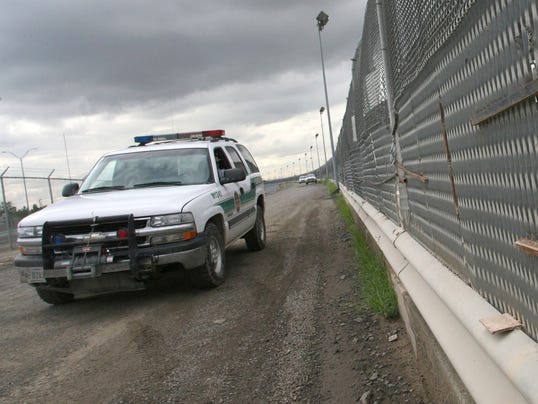7/1/2014


PHOENIX — The family of a Mexican youth killed by a U.S. Border Patrol agent firing across the border has a constitutional right to sue the agent in the United States, a federal court of appeals in New Orleans ruled Monday.
The ruling is the first nationally to determine the family of someone killed in Mexico had a right to sue in the U.S. The ruling also could affect at least some of the other six cases in which agents killed Mexicans by firing across the border.
The 5th U.S. Circuit Court of Appeals ruled that the family of Sergio Adrian Hernandez Guereca has the right to sue Border Patrol Agent Jesus Mesa Jr., who killed the 15-year-old in Juarez, Mexico, in 2010. The family had filed a $25 million lawsuit.
Hernandez Guereca was killed after he poked his head out behind a pillar of a train trestle and was shot in the face.
Mesa had said he was surrounded when he fired the shots across the border.
The boy and his friends were playing a game in which they ran up a culvert to touch the barbed wire separating the U.S. and Mexico and then ran back down, the ruling states.
In the 2-1 decision, the court used harsh language to describe Mesa's conduct.
"If ever a case could be said to present an official abuse of power so arbitrary as to shock the conscience, the Appellants have alleged it here," the ruling stated. "Hernandez had retreated behind the pillars of a bridge when, unprovoked, Agent Mesa fired two gunshots in his direction. ... On these facts Agent Mesa had no reason to suspect that Hernandez had committed any crime or engaged in any conduct that would justify the use of any, let alone deadly, force."
The court said a reasonable person would conclude that the agent "acted out of a conscience-shocking malice or wantonness rather than merely careless or excessive zeal."
The Border Patrol union did not return calls for comment.
Luis Fernando Parra, the lawyer for the family of Jose Antonio Elena Rodriguez, called the ruling historically important and said it could affect other cross-border shooting cases, such as Elena Rodriguez's.
The 16-year-old was killed on Oct. 10, 2012, by one or more Border Patrol agents firing through the border fence into Nogales, Mexico.
The boy was hit 10 times in the back and head. The Border Patrol alleges he was throwing rocks, but witnesses dispute that.
"It is very important precedent in our case. There is a remedy now," said Parra. "Our case is even more egregious and even more conscious-shocking."
Immigration-rights groups hailed the ruling.
The court upheld a lower-court ruling that said Hernandez Guereca's family could not sue the U.S. government, the Border Patrol or the agent's supervisors. It also ruled that the family could not sue under the Constitution's Fourth Amendment, which protects against illegal search and seizure, because Hernandez Guereca was not a U.S. citizen.
The family could sue under the Fifth Amendment over "arbitrary conduct that shocks the conscience," the court ruled, because it applies more broadly to "any person."
The constitutional protection applies along the border because it is an area similar to Guantanamo Bay, Cuba, which is not a de facto part of the U.S. but is a location where the U.S. projects "hard power," with a heavy presence of armed federal agents. A lack of accountability at the U.S.-Mexican border weighs "in favor of recognizing some constitutional reach," the ruling said.
Not giving constitutional protections would create "zones of lawlessness" where agents could move in and out of constitutional protections, the ruling said.
"The court has said that the Border Patrol cannot and do not enjoy immunity for unprovoked killings ... no matter where they are standing and where it happened," said James Lyall, a staff attorney with the American Civil Liberties Union of Arizona. "It is a bad policy to establish a zone of immunity."
Even with the ruling, Lyall said, the government needs to hold agents accountable criminally and not leave it to families to sue to get justice.
No comments:
Post a Comment